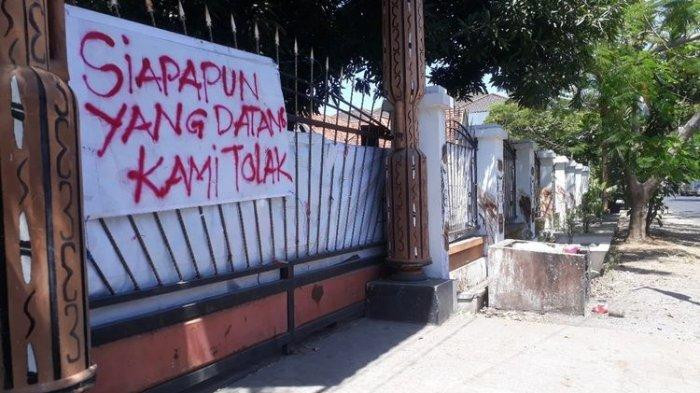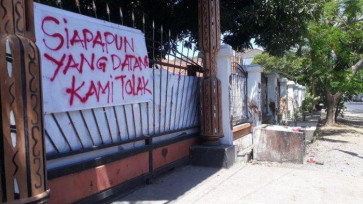Popular Reads
Top Results
Can't find what you're looking for?
View all search resultsPopular Reads
Top Results
Can't find what you're looking for?
View all search resultsCultural understanding: Panacea for racism, better approach for Papua
The recent racial incident should open our eyes to reflect: Have we applied the right approach in Papua? The Papua discourse is not necessarily always related to economic, political, security and human rights violations. There is a saturation point if Papua is always discussed in that perspective.
Change text size
Gift Premium Articles
to Anyone
T
he protests of the Papuan community in several big cities on Java and in Papua as a result of racism experienced by Papuan students in Surabaya and Malang, East Java, should not have been surprising. The causal factors of such a time bomb that are the troubles in Papua are easily identified: ineffective economic development, demands for historical rectification that have never been responded to concretely by the government, and unresolved human rights violations.
The three dimensions of the problem are exacerbated by the discrimination and injustice experienced by indigenous Papuans for years, resulting in degradation of self-esteem and also in the eyes of other ethnic identities in Indonesia. A Papuan youth once mentioned in a discussion: “I would rather die than be insulted.” This is an expression of the importance of the Papuan identity as something that must be defended and respected.
The recent racial incident should open our eyes to reflect: Have we applied the right approach in Papua? The Papua discourse is not necessarily always related to economic, political, security and human rights violations. There is a saturation point if Papua is always discussed in that perspective.
I remember a statement from former education and culture minister, the late Daoed Joesoef. He said, “If you want to advance Papua, don’t send economists but anthropologists who focus on culture.” It is thus necessary to first understand the culture of the Papuans before carrying out an intervention or assessment in any fields about Papua. Cultural understanding is also a panacea for racism.
Ironically, the current trend is that Papua is understood through the eyes of people outside Papua rather than from the Papuan people themselves, which is a source of problems in Papua. Limited understanding of Papuan culture by non-Papuans can become fertile ground for racism. Racism is not only about physical differences but also relates to a hierarchy of social positions in the relation of production.
In general, a cultural approach in this case is an attempt to understand Papuan ideas, values, beliefs and behavior. Such an approach analyzes the competition between values held by the community in a civilization.
The discourse of development is the dichotomy of modernization (rationality) versus traditionalism (irrationality), which is still thick in Papua. Subjectively, modernization is considered a good thing, has a high value and signifies the progress of civilization so that a behavior that is contrary to modernization is considered negative, lagging or bad.


















